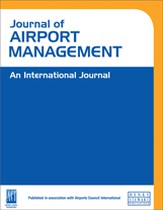Advanced algorithms for improved baggage handling
Abstract
According to SITA, customer satisfaction in airports depends heavily on the quality of baggage handling and the speed of delivery. Baggage handling infrastructure is, however, both costly and extremely space-consuming; hence, it is necessary to use the resources optimally. In this paper, we present strategies for optimising baggage processes in airports for outbound and inbound baggage. Outbound baggage is defined as baggage checked-in locally at curbside, transported to the airside by the baggage handling system (BHS), where it is sorted to a chute (lateral). Based on a case study, the authors introduce the idea of shifting the assignment strategy of chutes from a conventional build to a more handler-friendly compressed build. This is achieved without extending the baggage infrastructure, but by using advanced optimisation methods to allocate chute(s). Inbound baggage is baggage terminating in the airport after being reclaimed by the passenger. For inbound baggage, the process is different and based on batches. The paper is presenting an idea of how to use an optimised algorithm to allocate reclaim belts in the offloading facilities while improving the experience for passengers in the reclaim hall. The case studies are based on examples from Copenhagen Airport.
The full article is available to subscribers to the journal.
Author's Biography
David Pisinger is professor in operations research at DTU Management. He graduated in mathematics and computer science in 1990, and received his PhD at University of Copenhagen in 1995. His main research topics include transportation planning, energy optimisation and packing problems. He has written more than 100 papers in leading journals, getting more than 1,500 citations annually. David received the PhD prize of the Danish Academy of Natural Sciences in 1995; the Hedorfs Fonds prize for Transport Research 2013; the Glover-Klingman prize 2018 and was finalist for the Franz Edelman Award 2019. He has supervised more than 20 PhD students, many of whom have received awards and distinctions: Two PhD students have received the VeRoLog dissertation prize, one has received the TSL dissertation award and one has received the Danish innovation Prize.
